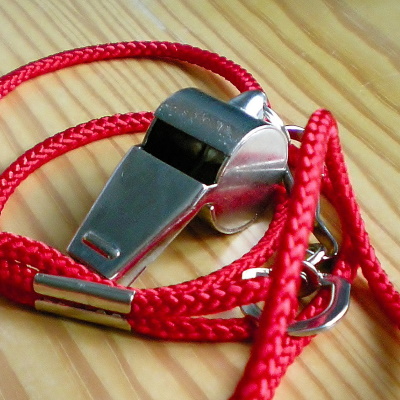
In this fact-checking video, CNN’s Jake Tapper scrutinizes a false claim — made by President Donald Trump and Rep. Jim Jordan — that rules were recently changed to allow an intelligence community whistleblower to file a complaint alleging that Trump solicited interference from a foreign leader in the 2020 presidential election.
Jordan, in a Sept. 29 interview with Tapper on CNN’s “State of the Union,” said the unnamed whistleblower who filed the complaint alleging misconduct by Trump “had no firsthand knowledge” and had only “heard something from someone who may have heard something from someone.”
When Tapper told Jordan “you do not need to have firsthand knowledge to be a whistleblower,” Jordan responded by saying, “Well, you don’t now because they changed the form. You used to.”
A day later on Twitter, Trump asked, with added emphasis, “WHO CHANGED THE LONG STANDING WHISTLEBLOWER RULES JUST BEFORE SUBMITTAL OF THE FAKE WHISTLEBLOWER REPORT?”
But there was no change in law or policy.
In a Sept. 30 statement, the independent Office of the Inspector General of the Intelligence Community said, “by law the Complainant – or any individual in the Intelligence Community who wants to report information with respect to an urgent concern to the congressional intelligence committees – need not possess first-hand information in order to file a complaint.”
The form whistleblowers use to file a complaint was recently modified to remove language that could have been misinterpreted by would-be whistleblowers.
“[T]he ICIG understood that certain language in those forms and, more specifically, the informational materials accompanying the forms, could be read – incorrectly – as suggesting that whistleblowers must possess first-hand information in order to file an urgent concern complaint with the congressional intelligence committees,” the statement said.
However, the section that said “FIRST-HAND INFORMATION REQUIRED” never meant that whistleblowers couldn’t file a complaint based on secondhand information, as Cato Institute senior fellow Julian Sanchez explained.
“It’s clear the language at issue is about what gets escalated, not what’s reportable,” Sanchez wrote in a lengthy Twitter thread. He added, “What the form they’re citing” says is “‘this won’t go up the chain without something more,’ which the IG did indeed get in this case.”
In fact, the ICIG statement said the whistleblower did have “direct knowledge of certain alleged conduct” and that “other information obtained during the ICIG’s preliminary review supported the Complainant’s allegations.” That led the ICIG to declare that the complaint “appeared credible.”
For a complete breakdown, watch the video with Tapper’s explanation, or read our Oct. 1 post “No Hearsay Rule Change for Whistleblowers.”
Our previous fact-checking collaborations with CNN are available on FactCheck.org.
The post Video: False Whistleblower Rule Claim appeared first on FactCheck.org.

